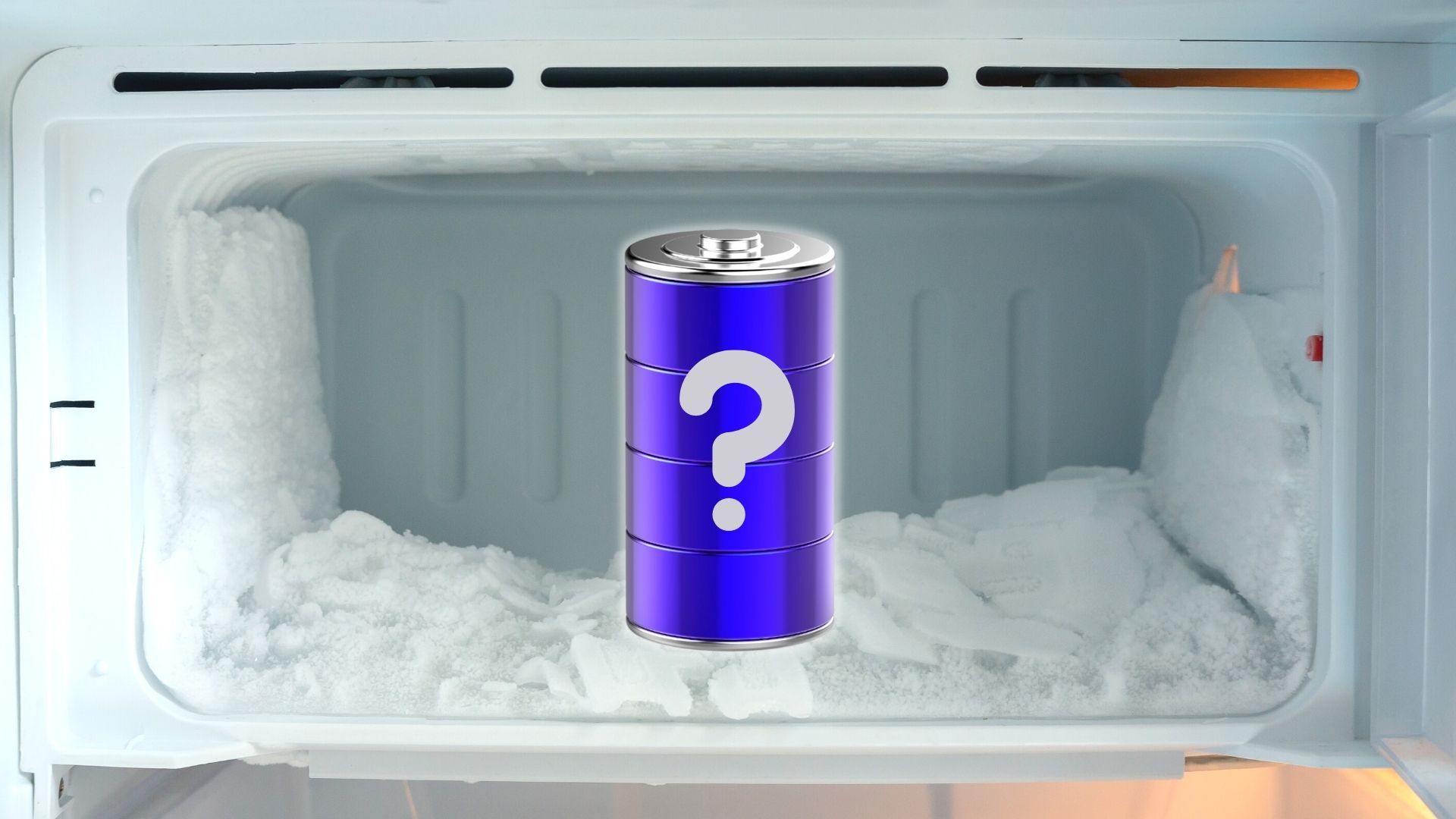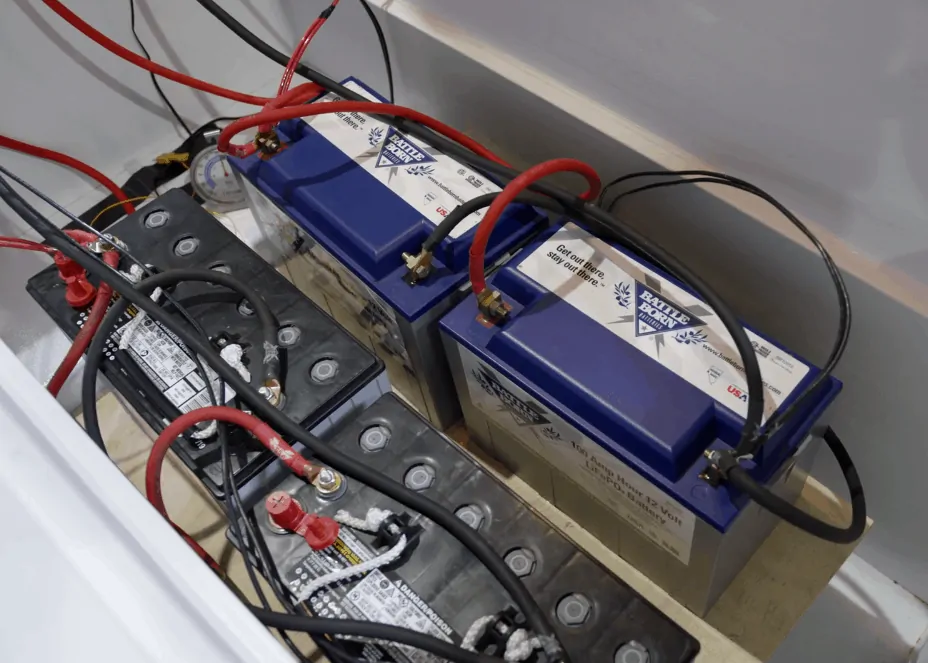People put batteries in the freezer to extend their lifespan and improve performance. Cold temperatures can slow down the chemical reactions inside batteries, potentially revitalizing them.
Batteries are essential in powering everyday devices, from remote controls to smartphones. Over time, they can lose their charge and effectiveness. Many people seek ways to prolong battery life and maximize their usage. One popular method is storing batteries in the freezer.
This practice stems from the belief that cold temperatures can enhance battery performance and longevity. Understanding the science behind this can help users make informed decisions about battery care. This blog explores the reasons behind this trend and offers tips for optimal battery maintenance, ensuring you get the most out of your devices.

Credit: www.usatoday.com
The Freezer Battery Myth
Many people believe that putting batteries in the freezer helps them last longer. This idea started many years ago. Some think cold temperatures slow down the chemical reactions inside batteries. Others believe it helps prevent battery leakage.
Despite these beliefs, scientific evidence does not support this method. Batteries are designed to work best at room temperature. Freezing can actually harm some types of batteries. It can lead to reduced performance and shorter lifespan.
Many battery manufacturers recommend storing batteries at normal temperatures. Keeping them in a cool, dry place is best. Understanding these facts can help people make better choices for battery care.
Does Cold Really Help?
Cold temperatures can affect battery performance. Many believe that freezing batteries can extend their life. Scientific studies show mixed results on this claim. Cold can slow down chemical reactions in batteries.
Some batteries benefit from lower temperatures. Others may suffer from damage due to freezing. Storing batteries in the freezer can lead to condensation. This moisture can harm battery components.
Anecdotal evidence suggests benefits for certain battery types. Alkaline batteries sometimes last longer when cold. Lithium-ion batteries may not show significant improvement.
| Battery Type | Effect of Cold |
|---|---|
| Alkaline | May last longer |
| Lithium-ion | No significant change |
| Nickel-metal hydride | Can suffer from damage |
Types Of Batteries And Freezing
Alkaline batteries can last longer in cold temperatures. Storing them in the freezer may slow down chemical reactions. This helps maintain power for a longer time.
Rechargeable batteries like NiMH and Li-ion react differently to cold. Cold temperatures can reduce their efficiency. Storing them in the freezer is not recommended for these types.
| Type of Battery | Effect of Freezing |
|---|---|
| Alkaline | May last longer |
| NiMH | Efficiency decreases |
| Li-ion | Not recommended |
Potential Risks And Dangers
Storing batteries in the freezer can lead to serious risks. One major concern is leakage. When batteries freeze, their internal components may break down. This can cause corrosion over time.
Corroded batteries can leak harmful chemicals. These chemicals can damage electronics and harm the environment. Proper disposal of these batteries is essential.
Frozen batteries can also pose safety hazards. If they burst, they might create a mess. This mess can be dangerous for pets and children. Keeping batteries at room temperature is the safest option.
Proper Battery Storage Tips
Storing batteries properly is essential for their longevity and performance. The ideal temperature for batteries is between 32°F and 80°F. Extreme heat can cause batteries to leak or even explode. Cold temperatures can slow down the chemical reactions inside batteries.
Keeping batteries in a dry place helps prevent rust and corrosion. A sealed container can protect them from moisture. Avoid placing batteries near metal objects to prevent short circuits.
Check battery expiration dates regularly. Old batteries should be disposed of safely. Consider using a battery organizer to keep track of different types. This will help maintain efficiency and safety.

Credit: battlebornbatteries.com
Alternatives To Freezing
Storing batteries in the freezer is common, but other methods exist. Keeping batteries at room temperature is often best. Avoid extreme heat or cold. Extreme temperatures can damage the battery.
For effective charging, use the right charger. Overcharging can reduce battery life. Make sure to unplug the charger after it’s fully charged. Regularly check for any signs of wear.
| Battery Maintenance Tips | Benefits |
|---|---|
| Store at room temperature | Prevents damage |
| Use the correct charger | Extends battery life |
| Unplug after charging | Avoids overcharging |
| Regularly check batteries | Detects issues early |
Debunking Battery Myths
Many people believe that putting batteries in the freezer extends their life. This idea comes from older battery technology. Today’s batteries do not benefit from this method. Experts agree that cold temperatures can actually harm batteries.
Storing batteries in a cool, dry place is best. Extreme cold or heat can cause damage. Separation of different battery types is also important. Mixing alkaline and lithium batteries may lead to leaks or other issues.
Consulting battery experts can help clear up these myths. They recommend following manufacturer guidelines for storage. Understanding battery care ensures better performance and safety.

Credit: battlebornbatteries.com
Environmental Considerations
Many people do not know how to properly dispose of batteries. Throwing batteries in the trash can harm the environment. Toxic chemicals can leak and damage soil and water. Recycling batteries helps reduce this risk.
Different types of batteries have different recycling methods. Lead-acid batteries are often recycled at special centers. Lithium-ion batteries can be taken to electronics stores for recycling. Understanding these options is important for everyone.
| Type of Battery | Recycling Method |
|---|---|
| Lead-acid | Special recycling centers |
| Lithium-ion | Electronics stores |
| NiMH | Drop-off locations |
Responsible battery disposal protects the planet. Always look for ways to recycle. This small action can make a big difference.
Frequently Asked Questions
What Does Putting Batteries In The Freezer Do?
Putting batteries in the freezer can temporarily slow down chemical reactions. This may extend their life, especially for alkaline batteries. However, it’s not a guaranteed method and can cause condensation, which may damage the batteries. Store them in a cool, dry place for best results.
Is It Better To Put Batteries In The Fridge Or Freezer?
Storing batteries in the fridge is not recommended. Cold temperatures can damage them. Instead, keep batteries in a cool, dry place at room temperature. This maintains their performance and lifespan effectively. Proper storage ensures optimal functionality for your devices.
Why Do Old People Put Batteries In The Fridge?
Old people often put batteries in the fridge to extend their lifespan. Cooler temperatures can slow down chemical reactions inside batteries, helping them last longer. This method is a simple way to preserve battery life for devices used infrequently. Always ensure batteries are stored in a sealed container.
Does Putting Your Phone In The Freezer Make The Battery Last Longer?
Putting your phone in the freezer does not extend battery life. Cold temperatures can actually harm battery performance and may damage internal components. It’s best to keep your phone at room temperature for optimal battery health. Avoid extreme conditions to maintain battery longevity.
Conclusion
Storing batteries in the freezer can extend their lifespan and improve performance. This simple trick helps slow down chemical reactions that drain power. While not universally recommended, it’s worth considering for certain battery types. Always check manufacturer guidelines before trying this method.
Keep your devices running longer with this handy tip!
